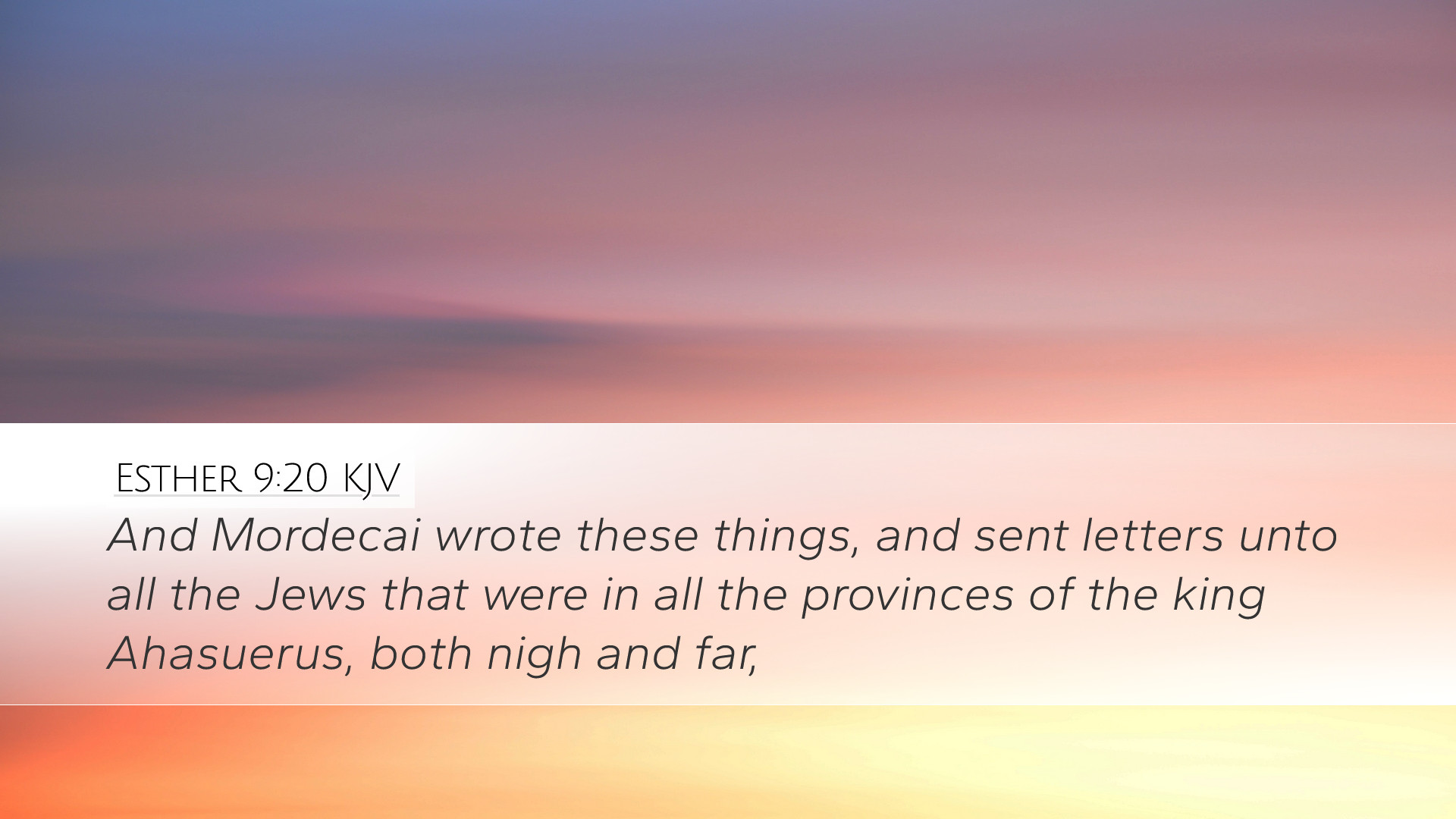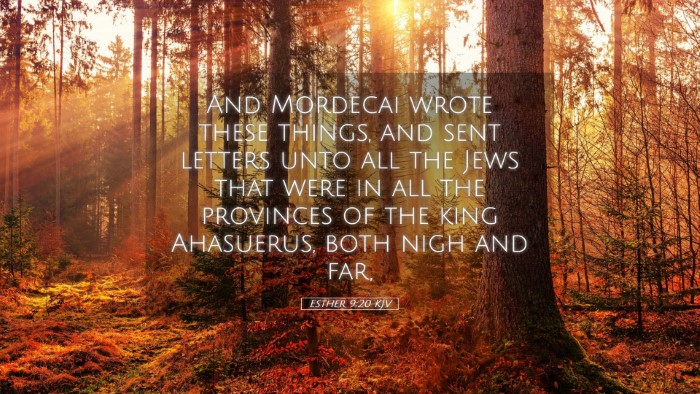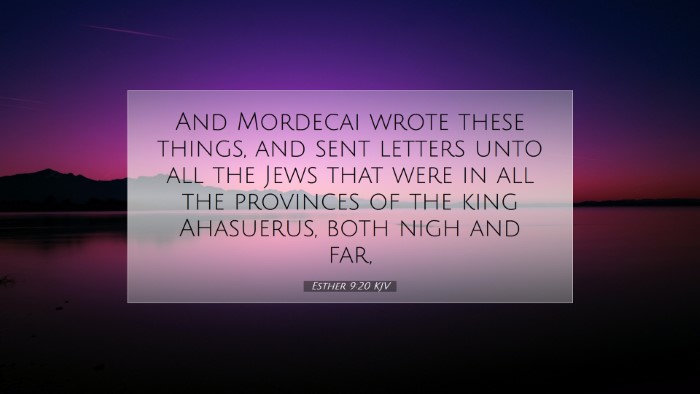Commentary on Esther 9:20
Esther 9:20 states: "And Mordecai wrote these things, and sent letters unto all the Jews that were in all the provinces of the king Ahasuerus, both nigh and far." This verse marks a pivotal moment in the narrative of Esther, rich with theological significance and implications for Jewish identity and commemoration.
Contextual Understanding
The backdrop of Esther 9 explores the aftermath of the Jews' deliverance from annihilation, where the reversal of their fortunes under the decree of King Ahasuerus shows the providential hand of God at work. Here, Mordecai, as a central figure of authority and a steward of Jewish heritage, takes initiative in documenting and disseminating the events of the Purim celebration.
Insights from Public Domain Commentaries
Historical Significance
Matthew Henry emphasizes the importance of recording significant events. Mordecai's writing is more than mere documentation; it serves as a historical record for future generations. This underscores the value of memory in shaping identity and faith within the Jewish community. The letter serves as both a reminder of God's deliverance and an imperative for ongoing remembrance of His faithfulness.
The Role of Mordecai
Albert Barnes notes Mordecai's leadership demonstrates wisdom and awareness of the need for unity among the Jewish people. Sending letters to all Jews in the provinces signifies an act of solidarity, reinforcing community bonds beyond geographical boundaries. This communication becomes a means of establishing an enduring festival, enhancing community identity aligned with divine providence.
Theological Reflection
Adam Clarke elaborates on the theological implications of the events surrounding Purim. The act of sending letters is not just a logistical step but a divine instruction to remember the day of their deliverance. This reflects the biblical principle of memorializing God's acts of salvation, a theme prevalent throughout Scripture. Just as God commanded Israel to remember the Passover, here Mordecai initiates a similar observance, tying together themes of grace, redemption, and remembrance.
Thematic Exploration
-
Celebration of Deliverance: The letters serve to establish Purim as a festival of joy and liberation, marking a pivotal victory against oppression. This transforms a narrative of despair into one of hope and celebration of God's providential care over His people.
-
Establishing a Community Identity: Mordecai's initiative in communicating these events reinforces a collective identity among the Jews, rooted in shared history and covenant relationship with God.
-
Legacy of Remembrance: The act of writing down these events stresses the need for posterity to engage with their history, ensuring that the narratives of faith remain vibrant through oral and written traditions.
-
Spiritual Encouragement: By reminding future generations of God's deliverance, the letters serve as a source of encouragement for maintaining faith, especially in moments of distress or persecution.
Practical Applications
The study of Esther 9:20 presents several applications for contemporary faith communities:
-
Encouraging Narrative Sharing: Just as Mordecai wrote to remind his people of God's work, congregations should foster environments where stories of God's faithfulness are shared and encouraged.
-
Commemoration and Celebration: Establishing traditions and festivals may serve as practical expressions of gratitude and recognition of God’s continued work in believers’ lives.
-
Community Togetherness: The act of reaching out across distances highlights the importance of community cohesion in faith practices, urging modern believers to maintain connections and support across different congregations and communities.
-
Engagement with Scripture: Engaging with the biblical narrative encourages reflection on God's intervention in history, inviting believers to recognize and affirm His sovereignty in their lives today.
Conclusion
Ultimately, Esther 9:20 invites believers to recognize the significance of remembrance, the power of unity, and the deep-rooted identity established through God’s redemptive acts. Mordecai's letters serve as a reminder that celebrating God's providence strengthens faith, inspires hope, and builds community—a lesson as crucial today as it was in ancient Persia.


